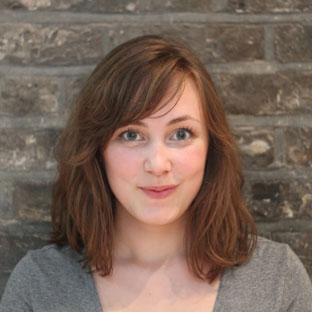I've recently been playing a lot of The Great Brain Experiment: an app created by UCL and the Wellcome Trust. It's a crowdsourcing game in which users (or players, or participants, or bored commuters - take your pick) do a series of brain games, which then get fed back into a research project. It’s a great game - it justifies my timewasting by feeding into research and allows me to develop my response and memory skills (by which I mean feeds into my competitive side by seeing how I do versus the average user).
Whereas previously you’d identify an issue, try to solve it in the lab or officespace with people who also work in the same building, now you can use the power of the internet, for information, communication and interaction.
Crowdsourcing like this has been around for a while, with the internet speeding up the process and influencing areas beyond plain research. It can go wrong - Reddit, the user-generated content sharing site recently got it very wrong by incorrectly crowdsourcing the identity of one of the Boston bombers. It’s not without criticism either: if you crowdsource business ideas, you rely on free labour to develop a potentially profitable idea for very low cost, perceived as a cheap person's idea development.
However, crowdsourcing also has huge power. Whereas previously you’d identify an issue, try to solve it in the lab or officespace with people who also work in the same building, now you can use the power of the internet, for information, communication and interaction. Wikipedia is crowdsourced. Crowdsourcing health research means that cost-ineffective R&D can be opened up to a global audience. The Guardian uses crowdsourcing techniques to process large publications, for example when records of MPs expenses were released. Crowdfunding platforms such as Kickstarter are changing the way that entrepreneurs finance their project.
Here at the RSA we love a good idea, we love good people working together on these ideas and we want to support you with this. Our Catalyst fund offers financial support to start-up ideas from Fellows, but also we work to put you in contact with Fellows who can help with the expertise you need. We're doing a series of Catalyst roadshows around the country, for people to promote their idea. I recently went to one in Bristol - there were some really strong ideas, and it's amazing what having an audience can do to help refine your idea, build new connections and open up new channels of thought and support. If you live in the South Central region, why not pop along to the Catalyst event in Reading?
A similar event coming up in the London region is the Reboot 3, led by Fellowship Councillor Roxanne Persaud. Part speed-networking, part speed-ideas-sharing and part pitching, it's a really good way to have, shape and develop an idea – find out more about how it works and how to run one.
I've been working at the RSA for nearly six months and this is my very first blog; every time I tried, I found myself sitting in front of a computer screen, mulling over the same problems. Then I spoke to colleagues, and found that through conversation an idea grows and develops, and suddenly you hit upon a solution. I love ideas, and much like a school of fish, I think that they work better together.
To find out more about how you can engage and develop your idea with us, check out our four ways to engage. For more information about local ideas-sharing activities in your region, keep an eye on the website, and to find out more about Catalyst visit the web pages.
Joanna Massie is Fellowship Programme Coordinator. You can follow her on @joannacmassie.
Related articles
-
Three reflections on RSA Meetups: Human connectivity and a catalyst for change
Dr Dee Gray, Alan Henry and Pam Luckock FRSAs
This blog is written as three reflections, inspired by recent on RSA regional ‘meet ups’ in north Wales. It is written by RSA Fellows Dr Dee Gray, Alan Henry and Pam Luckock.
-
"Thank you for teaching me how to look"
Sally Sheniman FRSA
Over three months from end of January to beginning of April in 2019, Artists in Residence at C2C Social Action worked with vulnerable women in Northampton, teaching art skills and bolstering confidence.
-
The Democratisation of Planning
Michael Ocock
Michael Ocock advocates for systems thinking and a change to the way we think about public engagement.


Be the first to write a comment
Comments
Please login to post a comment or reply
Don't have an account? Click here to register.